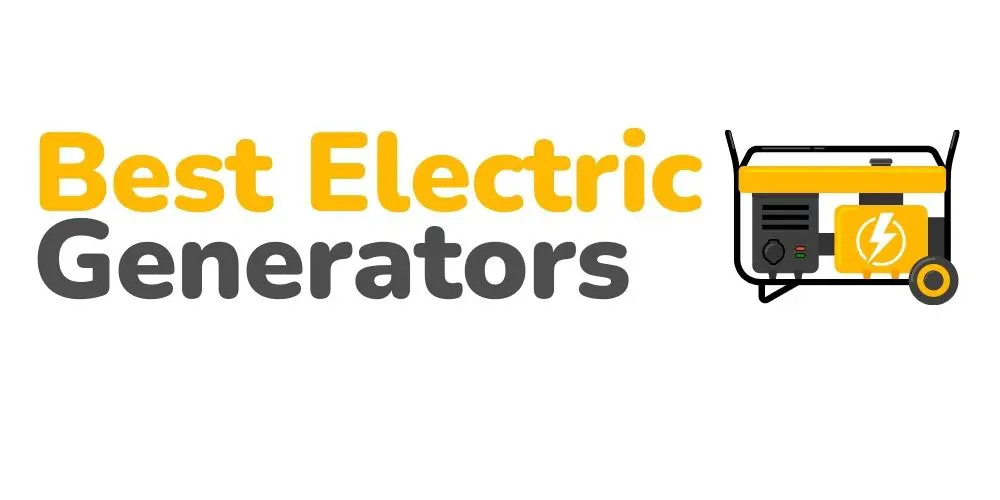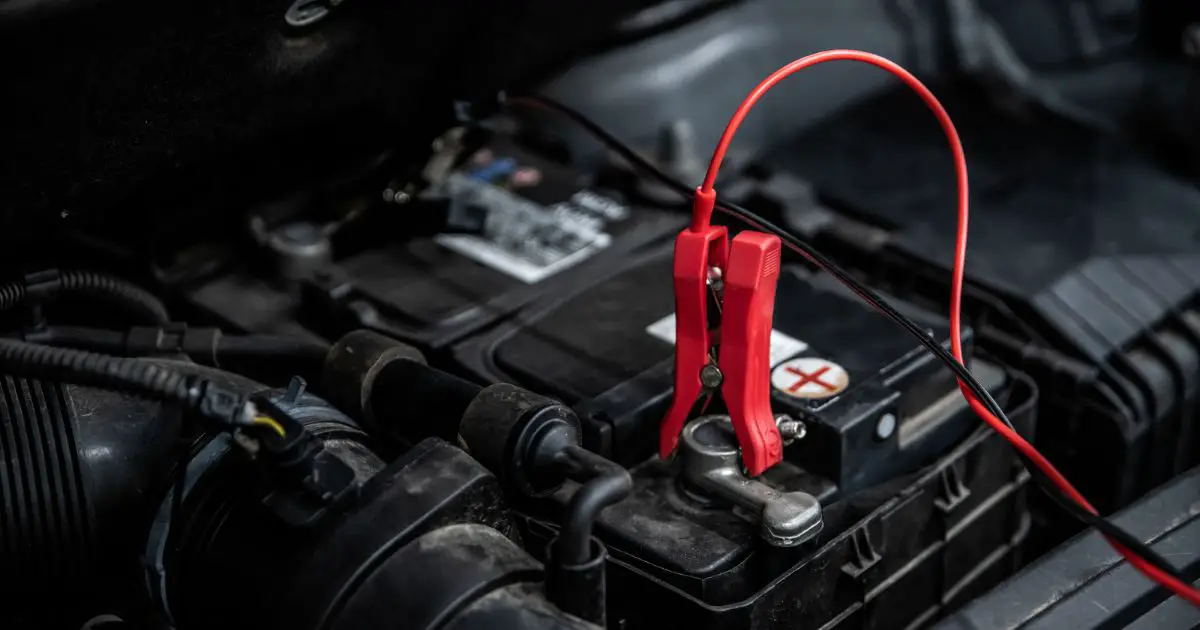Yes, portable generators have alternators that convert direct current into alternating current and then back into direct current.
Your portable generator produces DC (direct current). In contrast, an alternator is a device inside the portable generator that produces AC (alternate current). Your portable generator uses its onboard alternator to generate an alternate current. It then converts AC into DC.
But to understand how a portable generator uses alternators, we need to dig deep and understand how both these devices work. In this guide, we will discuss all these aspects, so carry on reading.
What Alternators Do in a Generator?
An alternator is a device that can convert mechanical energy into electrical energy in AC or alternating current. Most alternators come with a magnetic field. It continuously rotates during the operation of an alternator. Also, it has a stationary armature.
Within a generator, “genhead” gets the mechanical energy from the generator’s engine. When these components work together, the relative movement between the electrical and magnetic fields is created. It then produces electricity.
For a portable generator, an alternator works like its heart. It works on the principle of induction, featuring electromagnetism. As per this principle, a wire that contains electric charges will move as the wire is an electrical conductor.
The result will be voltage differences between the two ends of the conductor wire. It causes the movement of those electrical charges that are going through the wire. Consequently, electricity is produced with the movement of the conductor.
These alternators have stationary as well as moving parts. And these parts are placed inside the housing for protection. That stationery part is a stator, while the moving part is the rotor. So, a magnetic field is produced in three different ways.
- Induction, particularly in large generators that are brushless generators.
- Permanent magnets, smaller alternators have these magnets that can provide a stationary magnetic field. In contrast, the rotor converts this field into a rotating field and produces AC.
- Exciter, a small DC source, and features slip rings assembly, and it brushes to energize the alternator rotor.
Alternator vs. Generator
Alternator
It’s a unit that converts mechanical power from the prime mover into alternating current with a particular frequency and voltage. 3-phase alternators are more common. This is because they are more efficient in distributing, generating, and transmitting power.
Generator
This unit converts mechanical energy into electrical energy. It can either be alternating current or direct current with the help of a prime mover. This can later convert DC into AC with a commutator.
Primary differences
- An alternator has a rotating field, while a generator also has a rotating field but with high voltage.
- An alternator takes its supply from its stator while a generator takes its supply from the rotor.
- The armature that is inside an alternator is stationary, but it is moving in a generator.
- The voltage output of a generator is constant while that of an alternator it’s variable.
- The alternator comes with RPMs that are wide-ranging, while a generator has its RPMs narrowly ranging.
- A generator can charge a dead battery which is something that an alternator cannot do.
- The output of an alternator is significantly higher than that of a generator.
- Generators are larger and have a bigger footprint, but alternators are smaller in size and don’t need much space.
Do Generators Use Alternators?
Generators do have alternators in them with the help of which they convert direct current into alternating current. An alternator allows the generator to produce clean energy that is useful in comparing various sensitive devices.
Alternators there only produce alternating current. However, generators do tend to either reproduce alternating current or direct current. And they have alternating current with the help of an alternator.
They both produce power by spinning the root within a magnetic field that a stator creates. Both these components in these units are of copper winding to complete magnetic fields.
So, in a generator, the field windings of a stair are permanently magnetized, and they produce a magnetic field as soon as the rotor spins. And its results in current transfer to the front rotor with the help of brushes.
Therefore, a generator produces a current directly from the rotor, and brushes must conduct the current while degrading them pretty quickly. The alternator, on the other hand, uses its roots differently.
Here, the stair or the windings produces the current, and those brushes will last longer, making the operation more efficient. An alternator doesn’t need these brushes at all, and it uses a capacitor instead.
How Do I Know If I Have a Generator or Alternator?
The most significant difference between an alternator and a generator is their size. An alternator is considerably smaller than a generator.
Apart from that, it is more efficient than a generator. But to be sure, you need to check the RPMs of your unit. If they range widely, then you own an alternator; otherwise, it’s a generator.
But the simplest way to find out whether you are an alternator or a generator is to charge a dead battery with the unit. A generator will charge a dead battery, but the same can’t be said for an alternator. So, this will tell you whether you own a generator or an alternator.
What is the Advantage of Having an Alternator Instead of a Generator?
There are various benefits that an alternator has over a generator.
Higher output
One of the most significant benefits of an alternator over a generator is that it can yield higher outputs. This is because the components within an alternator are more robust and can work faster with less damage and higher rotation speed that produces a higher output.
Smaller size and lower weight
An alternator is smaller than a generator in size, and it is lighter too. So, it is going to be much more portable and will also take up less space.
Less maintenance
One of the best features of alternators and why they have a clear edge over generators is that they don’t need much maintenance. They don’t have brushes; instead, they use a capacitor that makes the entire system fast and efficient.
Can an Alternator be Used as a Wind Generator?
Yes, repurposed alternators that have been used in cars have been commonly used in small wind generators for their cost-effectiveness. Most of those ACDelco alternators have been repurposed especially to be used as wind generators.
You can use them in your wind turbines and produce electricity that will cost you nothing. A wind generator also converts motion into electrical current similarly that an alternator works, so you can convert it on your own by just using a wrench and a drill.
Can you power a house with a car alternator?
Yes, you can power a house with a car alternator. One way of doing this is to charge the storage batteries with your car’s alternator. And then, you can use those batteries to run an inverter that can produce alternating current for your home. You can link your car alternator with your gas engine with the help of a V-belt.
Is an AC generator an alternator?
Yes, an AC generator is an alternator as it can only produce alternating current. A generator is a unit that produces both types of currents. Therefore, an alternating current generator is an alternator.
What are the signs your alternator is going out?
There are various signs that you can notice and check if your alternator has gone bad or not. For example, overly bright or dim lights, a dead battery, malfunctioning or slow accessories, whining or growling noises, frequently stalling or trouble in starting, the smell of burning wires or rubber are all signs of a bad alternator.
What causes an alternator to fail?
There are various moving parts within an alternator. Once they are dirty or under extreme temperatures, they wear out, and your alternator will go bad. The most common of the issues with an alternator is its bearings.
Does it matter which direction an alternator spin?
It doesn’t matter in which direction you turn them, excluding the cooling fan. Therefore, you need to match the rotational direction of the fan, so it can blow air directly into the unit and not outside.
Conclusion
Alternators are highly efficient and are more powerful than generators. Thanks to their compact size and design, they are not going to take much space either. They also don’t need much maintenance and are highly reliable. They can only produce alternating current; therefore, they are an integral part of a generator for producing AC.


